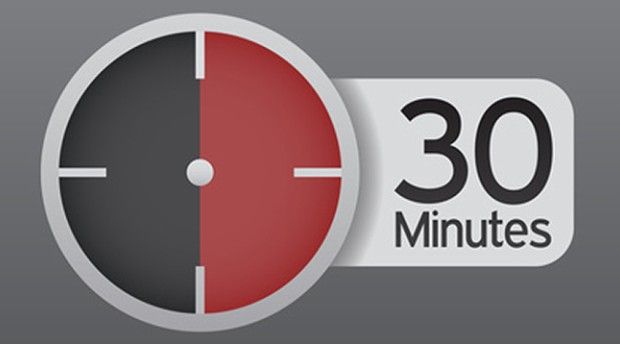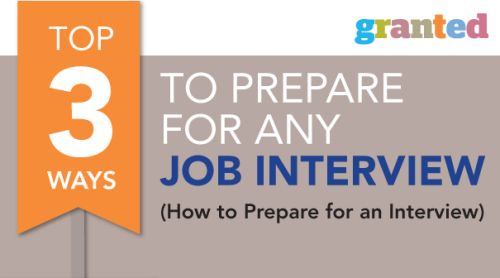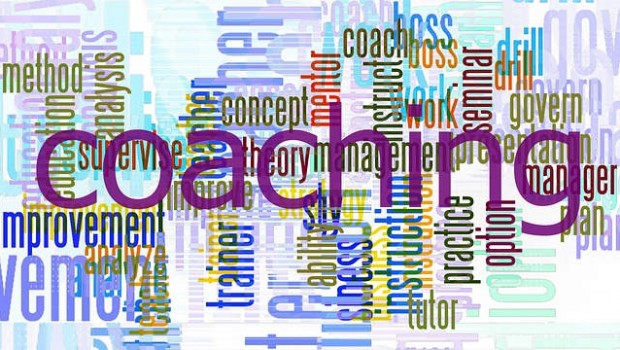The Interview: Successful Interviewing Guidelines
Post Views 9Summary: Finding the right job is often hard, but how prepared are you for an interview? Study these interviewing guidelines and be prepared for your next job interview.
Confirm the Interview
Make sure you have written the Company Name, Address, Telephone Number, Interviewers Name and Title, Position Reports To, Time and Date, and Directions to Interview.
Interview Preparation
Purposes of Interview
- To convince the employer why YOU should be hired.
- To learn as much as possible about the position, company and people.
- To obtain an Offer of Employment.
Three Types of Presentations to Be Prepared For:
- Short Synopsis – Write it out.
- Dialogue About Individual/Specific Job Duties: Match to the specific job.
- Quizzed on Technical Qualifications.
Physical Preparation
- Wear proper business attire.
- Be well groomed.
- Bring additional copies of your resume, and Letters of Recommendation.
- Bring complete directions and contact information.
- Arrive fifteen (15) minutes before interview.
- Complete the company application if required. Be neat and thorough. (Applicants have been eliminated from consideration for failure to complete application properly).
Your Role in the Interview
Communicator
- Listen Carefully.
- Be Responsive – Amplify your answers.
- Be prepared to discuss your job responsibilities briefly and clearly.
Key Phrases
- Action Words – I planned, I created, I conceived, I formulated, I originated, I developed, and I implemented.
- If in a Leadership Role – I managed, I was responsible for, I organized, I supervised, I lead, I guided, I coordinated, I built, I gave direction to, I directed, and I presided over.
- Result Phrases – I saved, I contributed to, I shot holes in, I reduced, I collected, I demonstrated that, I achieved, I increased, and I evaluated.
Educator
- Demonstrate your talents. Ex.: Samples of your work.
- Emphasize the highlights of your career achievements. Give examples such as how you have saved or made money for your company.
- Prepare solid reasons for leaving your present and past positions. (No negatives!) State positive objectives! Ex.: Career Advancement, Move into chosen career, Technical or Personal Growth, Stability.
Tests
Read directions carefully. Key Items to Discuss – Why you will perform successfully in this position.
- ________________________________________________________________________________________ ________________________________________________________________________________________
- ________________________________________________________________________________________ ________________________________________________________________________________________
- ________________________________________________________________________________________ _______________________________________________________________________________________
How to Present Yourself
Although qualifications are very important, the hiring decision is based more on interview performance and chemistry. The following are a few suggestions on how to create that chemistry.
- Smile
- Eye contact
- Lean forward
- Nod your head
- Sit erect but not rigid
- Show enthusiasm and interest in the position and company.
No matter how good you are, or how great the demand for your type of experience, you must sell your assets to the employer. You must do this on your own during the interview. You must approach the interview and the entire process with a positive attitude. Do not be arrogant, nor too hard to get. Never undersell. Always speak and think in positive terms.
Remember, the most qualified candidate doesn’t always get the job offer . . .
Offers of employment are extended to candidates for many reasons, but the decision is based on, to a large extent upon how the candidate interviews.
The quiet candidate for whom every word must be tediously extracted, the over-confident braggart who exaggerates their experience, or the candidate who has established a minimum salary objective which represents an outrageous increase, are all examples of the type of candidate who will receive more negative replies than offers.
The entire concept of the job hunting revolves around the ability to sell. You must recognize that in job hunting and interviewing, you must be a “salesperson”.
You must approach each interview with but one thought in mind – GET AN OFFER. Since offers are extended to those candidates who appear to be the most qualified, you must emphasize your good points and eliminate or avoid discussion of negatives. Without lying, you must answer all questions with whatever positive comments you can make. Every time you answer a question with the word, “no” you decrease your chances of an offer. Therefore, even if your experience is quite limited in a particular area, it would be better to respond with a comment about what it is you know, rather than any reference to what you don’t know.
Prepare Several Interview Questions
Your dual role on an interview is to market your skills and interview the company. Timely, appropriate questions not only provide you with valuable information about the company, but questions help create a positive conversational atmosphere between yourself and the company representative.
- What are the common denominators of successful people in this company?
- What characteristics are unique about this company?
- What outside influences affect the company’s growth?
- What are the short and long range company objectives?
- In what areas does this company excel?
- How can I contribute to the department and contribute to overall company goals?
- What is the organizational structure of: a) this department? b) the company?
- How long was the last person in this position? What made this person successful? Are there additional skills needed for this position now?
- What would you add or subtract to the incumbents performance?
- What would you expect me to achieve during my first six months to a year?
- What obstacles do you foresee that I would have to overcome?
- Why do you enjoy working here?
- What is your background?
- Who are your competitors?
- What distinguishes you from your competitors?
- What do you see as the primary focus of the department?
- What are the long term goals appropriate for the person in this slot?
- Who are the key people I will interface with and how can I help them?
- Tell me about yourself.
- What attracted you to this company?
- What areas does the company need developing or polishing in?
- Where do you think I could contribute most effectively now that you’ve seen my skills (2nd interview)?
Fielding Questions
Questions Commonly Asked By Employers
- Tell me about yourself. (Ask – Where do you want me to start?)
- Why do you want to leave your present position? “CLAMPS” – C=Challenge L=Location A=Advancement M=Money P=Prestige S=Security
- What do you do best in your present position?
- What are your career goals? Long term/short term?
- Why are you interested in this position?
- Do you think this position offers you the challenges you need?
- What are you looking for in a job?
- What can you do for our company?
- What distinguishes you from others in your field?
- What are your greatest strengths as a person?
- What are your greatest weaknesses or areas you want to improve?
- How would your boss or coworkers describe you?
- How do you: a) Set priorities? b) Organize your time? c) Solve problems?
- How do you feel about relocation – now/in the future?
- How do you feel about the commute?
Salary and Benefits
DO NOT bring up the subject of salary or benefits.
- Initiating a discussion on salary/benefits identifies you as a person who is motivated only by money.
- On the company’s employment application, do not leave the section for desired salary BLANK. (Write in negotiable or open).
- If the employer asks what you are currently earning be honest and specific.
- If the employer asks what your salary requirements are, your response should be, “I currently earn $______ and I would expect a fair offer.
- Specifying a desired salary is likely to underprice/overprice you, and/or impede your consultant’s ability to negotiate the best possible offer to you.
Closing the Interview
It is important that you leave the interview expressing enthusiasm about the position as well as uncovering any doubts that the interviewer may have about you as a viable candidate for the position. Below is the correct way to close an interview.
Script: “I’m very interested in the position. Now that we have met, what reservations or questions do you have about my qualifications or ability to do the job?”
After asking the question, it is necessary to be patient and wait for a response. The interviewer’s response may be all that stands between you and the position you desire.
If the interviewer’s response is”, “NONE”, (This is your opportunity to separate yourself from the crowd) ASK FOR THE JOB E.G. “When can I start?” or “Great! What else do you need from me to move forward to the next step?” Remember the last impression is a lasting impression.
If the interviewer states a reservation, respond with a description of actual work experience in your background that may not have been disclosed in the interview, or illustrate a similar work experience. Remember that when responding to any interview question, don’t just answer yes or no. Give a specific example and paint a verbal picture of that experience.
If you are interested in the position, tell them so. If they offer the position to you, and you want it, accept it on the spot. (If you wish some time to think it over, be courteous and tactful in asking for that time. Set a definite date when you can provide an answer. Don’t create the impression that you are playing one company against the other to drive up the bidding.)
Don’t be discouraged if no definite offer or specific salary is discussed.
Thank the interviewer for his/her time and consideration. If you have answered the two questions uppermost in their mind: “Why are you interested in this company?” and “What can you offer?” you have done all you can.
Follow-Up
It is important for you to call your recruiter immediately to discuss the interview. You need to work together to get an offer of employment.
Send a follow-up letter to the employer. The letter should consist of the following four themes:
- Thank him/her for their time.
- Express your confidence in doing the job.
- Three reasons why you can do the job.
- Express interest in pursing the opportunity and look forward to hearing from him/her soon.
Be sure that you spell the company name and the employer’s name correctly!
Career Planning
How will making a change to this specific position affect your career plan? (In other words what is the value of this position in relationship to your career?) Specifically:
- Will this position take you in the direction you want your career to go?
- In this position will you be doing things you enjoy doing professionally?
- If this position did not work out will it have an irreversible alteration on your chosen career path?
- Will this position provide an increase in your responsibilities?
- Will you be able to make a contribution that will have a significant impact in this department or in the company overall?
- Does the TOTAL compensation package make good economic and career sense?




 Why You Should Go to the Interview Even if You Do Not Want To
Why You Should Go to the Interview Even if You Do Not Want To  What Type of Jewelry Can You Wear to an Interview?
What Type of Jewelry Can You Wear to an Interview?  Be Interview Ready in 30 Minutes
Be Interview Ready in 30 Minutes  How to Communicate in a Job Interview; Communication Tips for Interviewing
How to Communicate in a Job Interview; Communication Tips for Interviewing  Top 3 Ways to Prepare for Any Job Interview (How to Prepare for an Interview)
Top 3 Ways to Prepare for Any Job Interview (How to Prepare for an Interview)  How to Prepare for a Panel Interview
How to Prepare for a Panel Interview  Offer Original Answers to Common Interview Questions
Offer Original Answers to Common Interview Questions  Avoid These 10 Job Interview Mistakes That Make You Seem Unqualified
Avoid These 10 Job Interview Mistakes That Make You Seem Unqualified